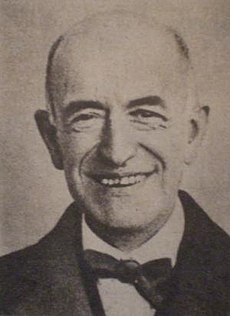| Works/Mp3 Biography Links Books Worklist | Biography ofManuel de Falla23 nov 1876 (Cádiz) - 14 nov 1946 (Alta Gracia) |
| Buy sheetmusic from Falla at SheetMusicPlus |
|
Manuel de Falla y Matheu (November 23, 1876 – November 14, 1946) was a Spanish composer of classical music.
BiographyFalla was born in Cádiz. His early teacher in music was his mother; at the age of nine he was introduced to his first piano professor. Little is known of that period of his life, but his relationship with his teacher was likely conflicted. From the late 1890s he studied music in Madrid, piano with José Tragó and composition with Felipe Pedrell. In 1899, by unanimous vote, he was awarded the first prize at the piano competition at his school of music, and around that year he started to use de with his first surname, making Manuel de Falla the name he became known as from that time on. When only the surname is used, however, the de is omitted. It was from Pedrell, during the Madrid period, that Falla became interested in native Andalusian music, particularly Andalusian flamenco (specifically cante jondo), the influence of which can be strongly felt in many of his works. Among his early pieces are a number of zarzuelas, but his first important work was the one-act opera La vida breve (Life is Short, or The Brief Life, written in 1905, though revised before its premiere in 1913). Falla spent the years 1907 to 1914 in Paris, where he met a number of composers who had an influence on his style, including the impressionists Maurice Ravel, Claude Debussy and Paul Dukas. He wrote little more music, however, until his return to Madrid at the beginning of World War I. While at no stage was he a prolific composer, it was then that he entered into his mature creative period. In Madrid he composed several of his best known pieces, including:
From 1921 to 1939 Manuel de Falla lived in Granada, where he organized the Concurso de Cante Jondo in 1922. In Granada he wrote the puppet opera El retablo de maese Pedro (Master Peter's Puppet Show, 1923) and a concerto for harpsichord and chamber ensemble (1926). The puppet opera marked the first time the harpsichord had entered the modern orchestra; and the concerto was the first for harpsichord written in the 20th Century. Both of these works were written with Wanda Landowska in mind. In these works, the Spanish folk influence is somewhat less apparent than a kind of Stravinskian neoclassicism. Also in Granada, Falla began work on the large-scale orchestral cantata Atlàntida (Atlantis), based on the Catalan text L'Atlàntida by Jacint Verdaguer. Falla considered Atlàntida to be the most important of all his works; posterity has not agreed with this verdict, and performances of the piece have been extremely rare. Verdaguer's text gives a mythological account of how the submersion of Atlantis created the Atlantic ocean, thus separating Spain and Latin America, and how later the Spanish discovery of America reunited what had always belonged together. Falla continued work on the cantata after moving to Argentina in 1939, following Francisco Franco's victory in the Spanish Civil War. The orchestration of the piece remained incomplete at his death and was completed posthumously by Ernesto Halffter. Falla tried but failed to prevent the murder of his close friend, the poet Federico García Lorca in 1936. However, he did spend some time teaching. Among his notable pupils was composer Rosa García Ascot. He died in Alta Gracia, in the Argentine province of Córdoba. In 1947 his remains were brought back to Spain and entombed in the cathedral at Cádiz. One of the lasting honors to his memory is the Manuel de Falla Chair of Music in the Faculty of Philosophy and Letters at Complutense University of Madrid. His image appeared on Spanish currency notes for some years. Manuel de Falla never married and had no children. WorksMediaReferences
See alsoExternal links
| ||||||||||||||||||
This article is licensed under the GNU Free Documentation License. It uses material from the Wikipedia article "Manuel de Falla. Allthough most Wikipedia articles provide accurate information accuracy can not be guaranteed. | ||||||||||||||||||
| Buy sheetmusic from Falla at SheetMusicPlus |
Help us with donations or by making music available!
©2023 Classic Cat - the classical music directory

Falla, M. de
Fantasia Baetica
Kaila Rochelle
Beethoven, L. van
15 Variations with Fugue "Eroica-Variationen"
Katherine Chi
Mussorgsky, M.
Night On A Bald Mountain
Skidmore College Orchestra
Bach, J.S.
Cello Suite No. 1 in G major
Pablo Casals
Bach, J.S.
5 Little Preludes (BWV939-943)
Chris Breemer
Beethoven, L. van
Piano Sonata No. 1 in F minor
Mark Hensley


